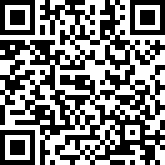A group of U.S. brokers are reportedly exporting a "tsunami" of hazardous electronics waste to developing countries in the Middle East and Southeast Asia, many of which lack the ability to safely dispose of that waste, or even ban its importation altogether.
According to research from environmental watchdog Basel Action Network (BAN), nearly 33,000 metric tons of discarded electronics such as phones and computers leave American ports each month. Those devices often include toxic metals such as lead, cadmium and mercury, which can leak into the ground at landfills, and produce hazardous fumes when scrapyards dispose of them by burning or dismantling them.
"Our data and field investigations show a troubling pattern of exports that appear inconsistent with both U.S. and international efforts to ensure safe and legal handling of hazardous waste," said BAN founder Jim Puckett in an October 22 release. "These practices undermine public trust, the rule of law, industry certifications, and the protection of human health and the environment."
Shipping containers tracked by BAN were routed to Malaysia, Indonesia, Thailand, the Philippines and the United Arab Emirates, despite national regulations that prohibit those countries from lawfully receiving e-waste. Between January 2023 and February 2025, BAN found that 10 U.S.-based waste brokers collectively exported more than 167,000 metric tons of possible e-waste, and accounted for nearly 6% of all U.S. trade with Malaysia over that period. Several of those brokers are based in California, which has stringent e-waste laws that require companies to report all waste export activity.
The world produced a record 62 million metric tons of e-waste in 2022, with the United Nations projecting that number to rise by 32% to 82 million metric tons in 2030. Just 17-22% of that waste is formally collected and recycled, "but even these figures understate the problem," BAN's report reads. After China banned foreign waste imports in 2017, Chinese disposal businesses moved to Southeast Asia, turning countries like Malaysia into "this mecca of junk," Puckett said.
Today, residue from e-waste in Malaysia has been found in palm plantations, under power lines and along roads, and has been known to contaminate agricultural lands considered essential to the country's food supply chain. Undocumented workers at e-waste facilities are also constantly exposed to toxic fumes in unregulated facilities, where they strip wires and melt plastics with no safety equipment.
“Waste traffickers and illegal recyclers blatantly violate Malaysia's laws in the name of 'recycling,' in order to reap profits by polluting our water, air and soil, making communities sick, exploiting and poisoning undocumented workers, and fostering corruption," said Pui Yi Wong, a BAN researcher based in Malaysia.
